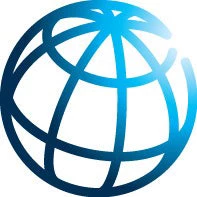Innovations in social media, mobile phones and interactive mapping are powerful tools to mobilize citizens and provide people with a voice. Governments can take advantage of the growing use of mobile technology, Facebook, Twitter, and interactive mapping in order to more deeply engage its citizens.
The Open Development Technology Alliance (ODTA) aims to enhance accountability and improve the delivery and quality of public services through technology-enabled civic engagement. It is a joint initiative anchored by the World Bank Institute and the Information and Communication Technologies (ICT) Sector Unit of the World Bank. Specifically, the platform aims to facilitate citizen feedback loops around public services and to give voice to citizens, by supporting programs using innovative uses of ICT, facilitating knowledge partnerships and brokering expert connections.
Partnerships
ODTA partners support initiatives of many kinds, and many include prominent Open Data initiatives. Knowledge, people, and tools come together to define opportunities, facilitate critical connections, and implement programs.
Some of ODTA’s partnerships and initiatives include:- Open Invitation for Feedback on New Research
As part of our Open Review process we invite you to review and comment on seven new research papers launched under the Open Development Technology Alliance. The papers consider the relevance and transferability of Open Data for development and how to empower citizens through ICTs. Read the papers and join the discussion.
- Mobile-Enhanced Participatory Budgeting in the Democratic Republic of the Congo
In the Democratic Republic of the Congo, Information and Communication Technologies (ICTs) are helping increase citizen participation, positively transforming the relation between citizens and their government, ultimately resulting in more effective public service delivery.
- Kenya Open Data Initiative
The Government of Kenya is opening public data in order to increase government transparency and public engagement and taking advantage of Kenya’s ubiquitous mobile phones and increasing Internet use in the process. Click here to see the case study.
- Moldova Government e-Transformation
The Government of Moldova has initiated a program to improve public sector governance and increase global competitiveness through the use of new information technologies.
- WaterHackathon
This is an innovative attempt to bring new ideas to pressing global challenges in water resource management.
- Mapping Dar es Salaam
In Dar es Salaam, more than seventy percent of residents live in unplanned areas without roads, drainage, waste collection and streetlights. To prioritize urgent development needs, local university students have been geo-coding marginalized neighborhoods.
For more information, please visit:


Join the Conversation